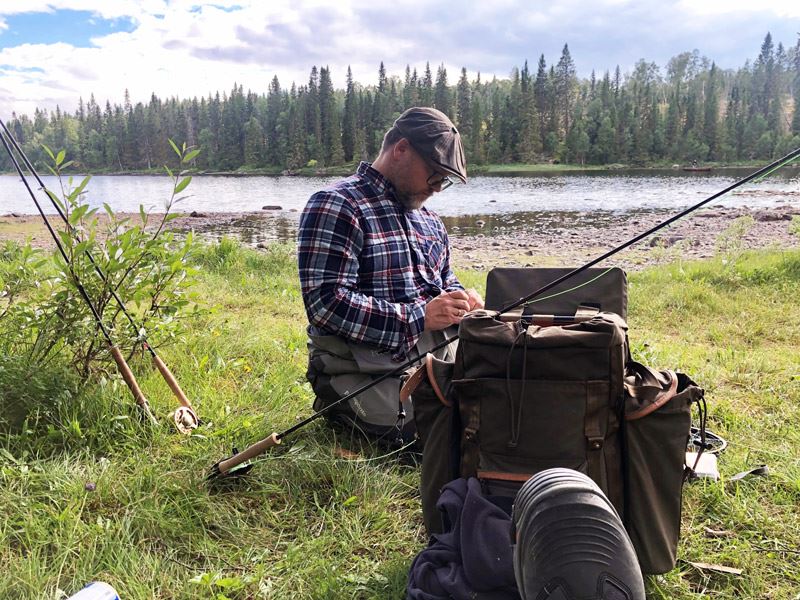Meet the Kiiltonians: Peter Forsberg / Örnsköldsvik, Sweden

Peter Forsberg is excited to continue his work in self-levelling floor screeds after his previous employer, TM Progress, was acquired by Kiilto in 2018. Kiilto’s family-owned feeling and focus on the environmental future is what motivates Peter to prioritize projects with large volumes that can make a real impact.
What does your role involve?
“I’m RDI Manager of self-levelling floor screeds in Sweden, and Quality and Environment Manager of Kiilto AB. “
Can you describe your career path?
“I had worked at TM Progress for about 11 years when it was acquired by Kiilto in 2018. That’s how I ended up here 4 years ago. I have a similar position as before, dealing with research and development, product quality, and environmental topics, but now in a broader perspective. Floor screed is my core competence area, which in great extent also requires both environmental and quality commitment.”
So why stay at Kiilto?
“Career-wise I’ve been raised by much smaller companies. The first company had 5 people in total. The next like 15. TM Progress 35 or something. Now Kiilto has 900.
I look forward to expanding this ‘floor as a service’ concept at this much larger, stronger organization while staying environmentally-focused.
I am also impressed how Kiilto manages to keep its family-owned culture despite its size. Because start-up spirit and ‘Customer is King’ mindset have always been a part of my working DNA.
But environmental leadership is the highest priority for me right now. And I love the environmental focus we have throughout the company. The reach and impact that Kiilto has grows by the day, especially with changes in demands and environmental ambition.”

How do you feel your work makes a difference?
“One of my favourite suppliers used to claim that floor screed was more challenging than rocket science - at least on the molecular level.
While there’s a lot of public research on concrete, the technology for self-levelling floor screeds is very complex and relatively unknown for others. It’s not possible to go read about it somewhere or heavy google.
Instead, in RDI you have to manage the consequences of the things you’re mixing and learn on the go. It’s a significant amount of ‘trial & error’ in the lab work and very few to ask for tips and tricks, so better to include more people, the sooner the better, to share experiences and competence.
For me, being at the front, means improving the environmental profile of products and prioritizing those with large volumes.
The other day I drove by an ice hockey arena in which we put approximately 500 tons of screed and a hotel which was totally levelled by our products. It’s fun to show my kids and my friends that we are delivering on these prestigious, environmental projects. While I did not do the flooring, I contributed to the quality and performance of the product.
And going forward, from a CO2 perspective, there’s a whole world of work to be done in my role, that can make a real difference.”
How does one of your personal passions inspire your work?
“I use my interest in fly tying and fly fishing to be more creative. Combining nature with creativity, and also a little science.
I’ve always put myself in a position to have a very broad working area. As you know, research and development is very complex, revolving around chemistry and the environment. So it helps to be a little nerdy, in my case for example fly fishing, science fiction or Lego.
Sometimes in the lab, we even like to combine Sci-Fi with screed and make our own Kiilto Pro R2D2s. There are a lot of moulds for baking cakes and making candies. We found that you can put screed in those as well. So rather than putting rests of quality control samples in the deposit waste, we occasionally make and take these R2D2s, X-mas figures, and animals to preschools for the kids to paint. I have one on my desk right now.”

Innovation culture
“Like those earlier companies I talked about, Kiilto’s earliest parts also battled with limited resources. They had some ideas, some entrepreneurship. That spirit has never left. You can see we like what we do, and put all our efforts into doing it.
To sustain this innovation culture that continually finds problems and develops solutions, it’s important to combine curiosity with knowledge and experience. You need to have open and transparent organization. To me, that is part of the family-owned company – we help each other, we talk to each other, we support each other. Because no one can have all the perspectives at once, so we need to share.
Finally, it’s crucial to have the courage to implement innovations. To go for an idea and push it on the market.”
Tags:




